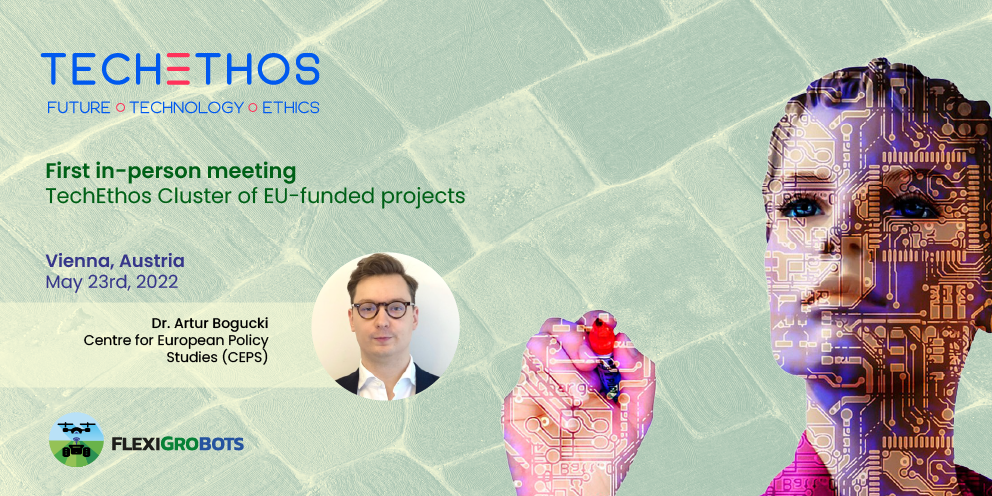TechEthos is an EU-funded project looking at ethical values in the design of new and emerging high-impact technologies. TechEthos has created a cluster of projects, with the aim to boost the exchange of knowledge and experience between EU-funded projects actively involving ethics-design on the development of innovative technologies.
Due to the ethical issues related to the use of Robotics and AI in the agriculture domain that FlexiGroBots deals with, the project was a perfect candidate to be part of this cluster. This will allow sharing the research results, lessons learned, and best practices with other EU-funded projects, working on topics such as Climate Engineering, Extended Digital Reality and Neurotechnologies.
FlexiGroBots project is represented by Moritz Laurer from the Centre for European Policy Studies (CEPS). CEPS is the consortium partner leading the activities on Ethical, Legal, Socio-Economic (ELSE) research and guidelines for the design and development of the FlexiGroBots Platform. Moreover, CEPS assesses the three pilots on EU guidelines for trustworthy AI that will result in identifying relevant recommendations for the AI community based on the findings, validation and results of FlexiGroBots.
The TechEthos Cluster celebrated its first online meeting in February 2022 to discuss how to get the most out of the collaboration and define other networking and engagement activities such as regular online meetings, joint webinars and position papers, among others.
Besides FlexiGroBots, other projects participating in the Cluster are:
Robotics4EU | SYNCH | NIMA | Co-change | HYBRIDA | iRECS | DARLENE | ASSISTANCE | B-CRATOS | STARLIGHT | Pop AI | GENIE | CO2FOKUS | HR-RECYCLER
_____________
What is TechEthos?
The TechEthos project is coordinated by the Austrian Institute of Technology. It involves ten scientific partners and six science engagement organisations and runs until the end of 2023. The project aims to produce operational ethics guidelines for three technology families for users such as researchers, research ethics committees and policymakers. These technology families are climate engineering, extended virtual reality and Neurotechnologies. To reconcile the needs of research and innovation and the concerns of society, the project will explore the awareness, acceptance and aspirations of academia, industry and the general public alike and reflect these in the guidelines.
